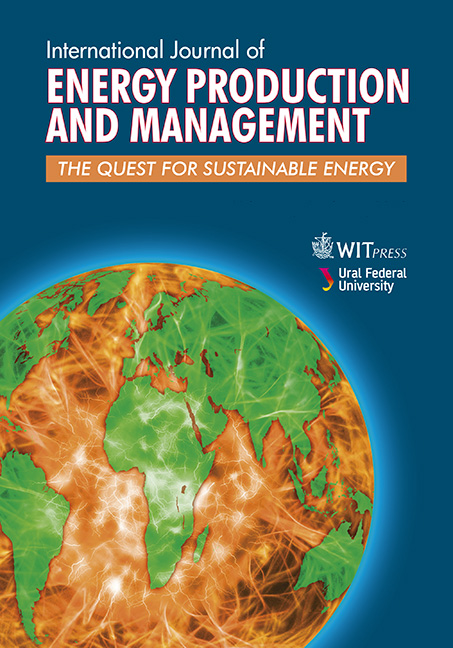Model for a sustainable energy transition in Spain. Case study in a district of the Basque Country
Price
Free (open access)
Volume
Volume 3 (2018), Issue 4
Pages
12
Page Range
325 - 337
Paper DOI
10.2495/EQ-V3-N4-325-337
Copyright
WIT Press
Author(s)
Juan Ángel Balbás & José Alberto Eguren
Abstract
The current energy model available in Spain is obsolete due to various circumstances, some techno- logical, others social, economic or environmental. This supposes a tension in the economic and social model of the country. Changing the current energy model to an alternative one requires a period of transition. This transition, in turn, requires a planned action and implies the identification of available energy in the vicinity, the awareness and commitment of citizens, the mobilization of technical, technological and economic resources and the design of a generation model and Proximity distribution, efficient. In this new model, compliance with environmental commitments (reduction of GHG emissions) together with the generation of economic activity and the guarantee that the transition will not give rise to any uncertainty regarding the availability and security of supply, must be unquestionable commitments. This document summarizes a research carried out in the Basque Country (Spain), which aims to promote the change of energy model. It presents the different phases of the study carried out, the methodology used, the conclusions, the road map of the transition process, the legislative situation in Spain and some reflections on the research carried out and the results obtained. Also, the study has analyzed the model of energy transition made by five European countries, studying their particulari- ties and the factors that have contributed to the transition and the change of the energy model in them. Models of good practices in Spain have also been studied.
Keywords
Citizen participation, Economic growth, Energy efficiency, Energy policy, Energy transition model, Sustainable energy model.




